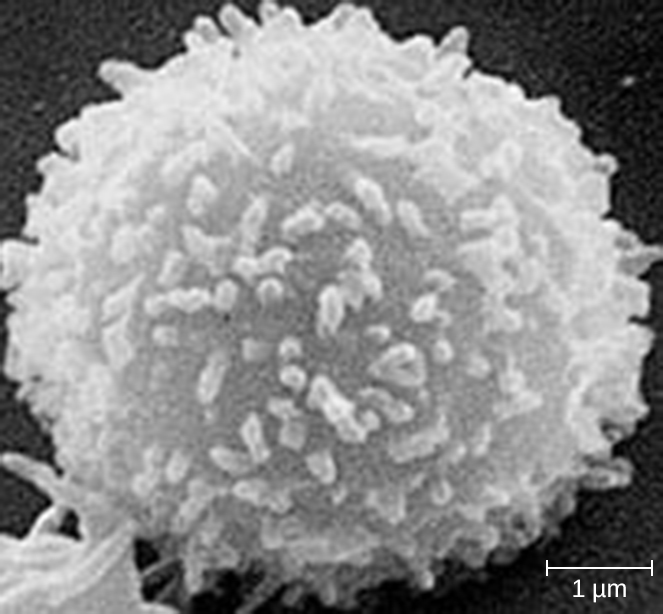| << Chapter < Page | Chapter >> Page > |
As explained in Overview of Specific Adaptive Immunity , the antibodies involved in humoral immunity often bind pathogens and toxins before they can attach to and invade host cells. Thus, humoral immunity is primarily concerned with fighting pathogens in extracellular spaces. However, pathogens that have already gained entry to host cells are largely protected from the humoral antibody-mediated defenses. Cellular immunity, on the other hand, targets and eliminates intracellular pathogens through the actions of T lymphocytes, or T cells ( [link] ). T cells also play a more central role in orchestrating the overall adaptive immune response (humoral as well as cellular) along with the cellular defenses of innate immunity.

T cells, like all other white blood cells involved in innate and adaptive immunity, are formed from multipotent hematopoietic stem cells (HSCs) in the bone marrow (see [link] ). However, unlike the white blood cells of innate immunity, eventual T cells differentiate first into lymphoid stem cells that then become small, immature lymphocytes, sometimes called lymphoblasts . The first steps of differentiation occur in the red marrow of bones ( [link] ), after which immature T lymphocytes enter the bloodstream and travel to the thymus for the final steps of maturation ( [link] ). Once in the thymus, the immature T lymphocytes are referred to as thymocytes .
The maturation of thymocytes within the thymus can be divided into tree critical steps of positive and negative selection, collectively referred to as thymic selection . The first step of thymic selection occurs in the cortex of the thymus and involves the development of a functional T-cell receptor (TCR) that is required for activation by APCs. Thymocytes with defective TCRs are removed by negative selection through the induction of apoptosis (programmed controlled cell death). The second step of thymic selection also occurs in the cortex and involves the positive selection of thymocytes that will interact appropriately with MHC molecules. Thymocytes that can interact appropriately with MHC molecules receive a positive stimulation that moves them further through the process of maturation, whereas thymocytes that do not interact appropriately are not stimulated and are eliminated by apoptosis . The third and final step of thymic selection occurs in both the cortex and medulla and involves negative selection to remove self-reacting thymocytes , those that react to self-antigens, by apoptosis. This final step is sometimes referred to as central tolerance because it prevents self-reacting T cells from reaching the bloodstream and potentially causing autoimmune disease , which occurs when the immune system attacks healthy “self” cells.

Notification Switch
Would you like to follow the 'Microbiology' conversation and receive update notifications?